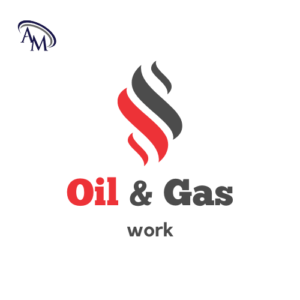
In the dynamic realm of the oil and gas industry, skilled manpower stands as a crucial asset for companies involved in exploration, drilling, production, and distribution activities. To meet the diverse manpower requirements, many companies rely on specialized agencies that provide workforce solutions both domestically and internationally. This comprehensive exploration delves into the dynamics of manpower supply in the oil and gas sector, examining its role, challenges, and impacts on both national and international fronts.
1. Introduction
The oil and gas industry is characterized by its complex operations spanning exploration, extraction, refining, and distribution of petroleum products. These activities require a diverse range of skilled professionals, including engineers, technicians, welders, rig operators, and safety personnel. Manpower supply companies play a crucial role in fulfilling the workforce needs of oil and gas companies, ensuring they have access to the right talent at the right time.
2. Role of Manpower Supply Companies
Manpower supply companies serving the oil and gas industry undertake several key responsibilities:
Recruitment: They actively recruit skilled workers from various sources, including job portals, industry networks, and educational institutions.
Screening and Training: Candidates undergo rigorous screening processes to assess their qualifications, experience, and suitability for roles within the oil and gas sector. In some cases, agencies provide specialized training to enhance workers’ skills.
Deployment: Once selected, workers are deployed to oil and gas projects based on client requirements, which may involve domestic or international placements.
Compliance: Manpower agencies ensure compliance with industry regulations, safety standards, and legal requirements related to employment and immigration.
3. Domestic Manpower Supply
Domestic manpower supply in the oil and gas industry involves sourcing workers from within the same country where the projects are located. This approach offers several advantages:
Familiarity with Regulations: Domestic workers are typically familiar with local regulations, safety standards, and industry practices, reducing the need for extensive training.
Cultural Compatibility: Local workers share a common language and cultural background with project stakeholders, facilitating communication and collaboration.
Accessibility: Domestic recruitment offers logistical advantages in terms of proximity to project sites and ease of coordination.
However, domestic manpower supply may face challenges such as fluctuations in the availability of skilled labor, competition from other industries, and regulatory constraints.
4. International Manpower Supply
International manpower supply involves recruiting workers from foreign countries to work on oil and gas projects located abroad. This practice has become increasingly common due to the global nature of the industry and the need for specialized skills. Key aspects of international manpower supply include:
Global Talent Pool: International recruitment allows oil and gas companies to access a broader pool of talent with diverse skills and expertise not readily available domestically.
Specialist Skills: Certain projects require specialized skills that may be scarce or unavailable locally. International manpower supply enables companies to tap into expertise from regions where such skills are more prevalent.
Cultural Diversity: Employing workers from different countries brings cultural diversity to project sites, fostering innovation and collaboration. However, cultural differences may also pose challenges in terms of communication and work practices.
Despite its benefits, international manpower supply entails complexities such as visa requirements, immigration procedures, language barriers, and cultural adaptation issues.
5. Impact on the Oil and Gas Industry
The utilization of manpower supply services significantly impacts the oil and gas industry in various ways:
Project Flexibility: Manpower supply enables companies to scale their workforce according to project requirements, ensuring flexibility and responsiveness to changing demands.
Timely Execution: Access to skilled labor ensures the timely execution of projects, minimizing delays and associated costs.
Quality Assurance: By sourcing skilled workers through reputable agencies, oil and gas companies can maintain high standards of safety, efficiency, and quality.
Cost Efficiency: Effective manpower management helps optimize labor costs and resource allocation, contributing to project profitability.
However, challenges such as skills shortages, geopolitical uncertainties, and regulatory changes can pose risks to the smooth operation of international manpower supply in the oil and gas sector.
6. Future Trends and Challenges
Looking ahead, several trends are shaping the future of manpower supply in the oil and gas industry:
Technological Advancements: Automation, digitalization, and remote monitoring technologies are transforming operational practices, influencing the demand for skilled workers with advanced technical competencies.
Sustainable Practices: There is a growing emphasis on sustainability and environmental stewardship in the oil and gas sector, driving the demand for workers with expertise in renewable energy, carbon capture, and environmental management.
Talent Development: Oil and gas companies are investing in talent development programs to address skills gaps, foster workforce diversity, and attract the next generation of workers.
Geopolitical Factors: Geopolitical tensions, trade restrictions, and regulatory changes can impact the mobility of skilled workers and the availability of manpower supply services across borders.
7. Conclusion
In conclusion, manpower supply plays a vital role in supporting the operations and growth of the oil and gas industry, both domestically and internationally. By partnering with specialized agencies, companies can access a skilled workforce, optimize resource utilization, and enhance project performance. However, navigating the complexities of manpower supply, including regulatory compliance, cultural differences, and geopolitical risks, requires careful planning and strategic management. By addressing these challenges and leveraging emerging opportunities, oil and gas companies can ensure a sustainable and resilient workforce supply chain to meet their evolving needs in a rapidly changing global landscape.
I recpected you sir I m instrument technician I like Italy country job if no have inst- tech job I like any job sir good salary & good company.